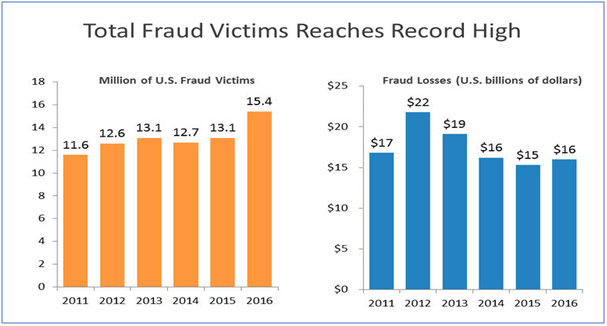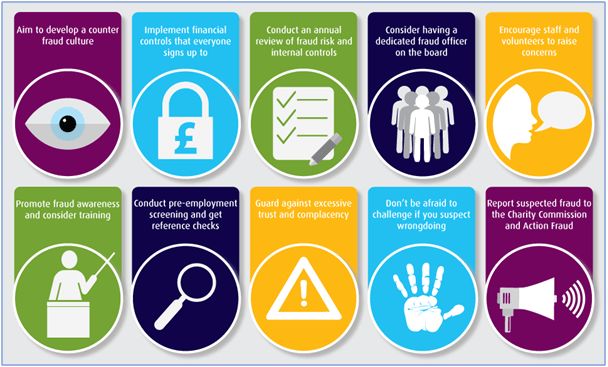One of the significant problems faced by organizations and stores of all kinds and sizes is business fraud. While fraud comes in many forms, it can be majorly categorized into asset misappropriation, financial statement fraud, and corruption. Most of these fraud categories are internal.
According to the 2014 Report to the Nation on Occupational Fraud and Abuse, a typical organization loses 5% of its annual revenues to fraud, which is quite a significant amount to any company. The Association of Certified Fraud Examiners further estimates that most of these losses are due to employee theft. Prevention of fraud is more fruitful than recovering from losses after a scam.

Table of Contents
Probity in Procurement
The broad objectives of probity in procurement relate to the integrity and honesty in procurement transactions. These include provide accountability; maintaining private sector integrity; ensuring compliance with processes; ensuring that all offers will be evaluated against the same criteria; preserving public and supplier confidence in the organisation’s processes; minimizing potential conflicts and the potential for litigation; ensuring the procurement activity provides the best outcome; and avoiding potential for misconduct, fraud and corruption.
The diagram below shows the areas to develop procurement process capabilities.

To prevent this, it is important for companies to take preventive measures. The following six steps can be used to design internal controls aimed to tighten control over access to important documents and company assets.
Implementing an Anonymous Theft Reporting System
Every company should establish a system that makes it easy for employees, vendors and customers to anonymously report suspected fraudulent activities. Be sure employees understand what constitutes fraud and that all reports are treated confidentially and without reprisal.
Be a Role Model and Lead by Example
An effective way to prevent fraud in your business is to create a positive work culture. It is important that the business owner and senior management serve as role models of honesty and integrity.
If the individuals at the top take a careless approach toward company policies and procedures, they are inviting their employees to do the same or worse. Set clear standards from the beginning by implementing a company-wide written code of conduct, and make it clear to employees that the company has a zero tolerance policy for employee theft. To maintain credibility, be sure to conduct a prompt and thorough investigation of every incident.
Implementing Internal Controls to Reduce Fraud Risk
Many small businesses depend on one person to process payments and invoices, make bank deposits, handle petty cash and reconcile bank statements. This is asking for trouble. Your business should implement a system that spreads and, if possible, rotates the financial duties of the business among two or more employees.
Store bank checks in a secure location and carefully review your bank statement each month, taking special care to look for checks made out to cash, employees or suppliers you don’t know. It’s a good idea to have your bank mail your company’s statements to your home address, so you’re sure you receive them before anyone else.
Insist that all employees, especially those with financial responsibilities, take a mandatory vacation of at least one week of consecutive days. Fraudulent employees will often resist taking a vacation out of fear that whoever does the job in their absence will uncover the fraudulent activities.

Screening Applicants Thoroughly Before Hiring Them
Hiring the right employees is the best way to stop fraud before it happens. CPAs say that it’s a good idea to perform background checks on potential employees. You’ll want to screen the applicant’s criminal history, civil history and drivers’ license violations, and verify his/her education, past employment and references.
Since employees experiencing financial difficulties may be more prone to committing fraud, think about requesting a credit check as well. Before performing background and credit checks, be sure you understand and comply with any legal requirements for obtaining the applicant’s consent.
Reducing, Even Restricting, Cash Transactions
Cash transactions are more prone to fraud and theft than digital transactions. More than often, internal theft is an opportunity misused than done with malicious intent. Moreover, in retail businesses, employee theft is now a growing concern. Usage of cash makes it difficult to monitor internal theft. Replacing traditional cash-based point of sale with mobile point of sale (mPOS) not only restricts internal theft and fraud, but it will also monitor employees’ behavior and activities in depth. Such mPOS applications can be used to collect money even at your client’s place and not just at your store.
The full content is only visible to SIPMM members
Already a member? Please Login to continue reading.
References
American Institute of Certified Public Accountants. (2010). “Five Steps to Prevent Fraud in Your Business”. Retrieved from: https://www.vscpa.com/Content/58296.aspx, accessed 12/9/2018.
Association of Certified Fraud Examiners. (2018). “Fraud Prevention Tips for Business to Prevent & Identify Embezzlement”. Retrieved from https://www.myrepublicbank.com/fraud-prevention-tips-business-prevent-identify-embezzlement, accessed 12/9/2018.
Bijlipay. (2016). “Five Precautionary Measures to Prevent Fraud in your Business”. Retrieved from: https://bijlipay.co.in/blog/five-precautionary-measures-prevent-fraud-business, accessed 12/9/2018.
Clarence Tein.(2017).“Critical Issues to Avoid Procurement Fraud”. Retrieved from SIPMM: https://publication.sipmm.edu.sg/critical-issues-avoid-procurement-fraud, accessed 12/9/2018.
Putri Pertiwi. (2018). “11 Steps To Prevent Fraud and Theft”. Retrieved from https://canary-whistleblowing.com/blog/2018/02/27/11-steps-to-prevent-fraud-and-theft, accessed 12/9/2018.
Tiffany Lau. (2017). “Contrasting Procurement Practices between the Private and Public Sector”. Retrieved from SIPMM: https://publication.sipmm.edu.sg/contrasting-procurement-practices-between-private-public-sector, accessed 12/09/2018.

